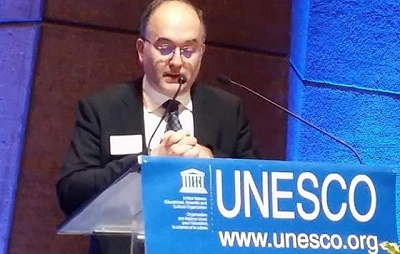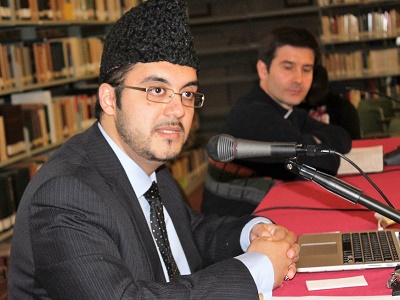March 2016 Lecture: Alba Fedeli
Thursday, March 17 at 17.00, 2016 3rd Lecture: Alba Fedeli, Central European University, Budapest, ‘The Oldest Qur’anic Manuscript(s)’.
Alba Fedeli is a research fellow at the Centre of Religious Studies at CEU in Budapest, where she is working on a research project on the transmission of early Qur’ānic manuscripts by applying phylogenetics. She is academic assistant at the Ambrosiana Library in Milan (Arabic Studies section) and honorary research fellow of the Institute of Textual Scholarship and Electronic Editing at the University of Birmingham (UK) where she obtained a PhD degree in Theology and Religion with a dissertation on the Qur’ānic manuscripts of the Mingana Collection, using the tools of digital philology funded by the Arts and Humanities Research Council. During her PhD research, she worked on the so-called Birmingham Qur’ān and the Mingana-Lewis palimpsest. The Library of the University of Birmingham had, since 1932, kept some rare fragments of the Qur’ān written on sheep or goat skin, part of the Alphonse Mingana Collection. Research made by Alba Fedeli on the ancient Arab calligraphy, and the carbon 14 dating carried out at the Oxford Radiocarbon Accelerator Unit, have revealed that one of these fragments may date back to a period between 568 and 645 d. C., assuming the possibility that the author has personally known the Prophet Muhammad.
Fedeli taught at the University of Milan from 2004 to 2012 and was Director of the Ferni Noja Noseda Foundation from 2004 to 2008. She has been involved in various projects on Qur’ānic manuscripts such as the Yemeni mission to digitise manuscripts from Dar al-Makhtutat in 2006 and 2007 and the survey of the manuscripts discovered in the Great Mosque of Sanaa in 2007. Her publications reflect her research interests in early Qur’ānic manuscripts which she started to conduct during her collaboration with the late Professor Sergio Noja Noseda.





















